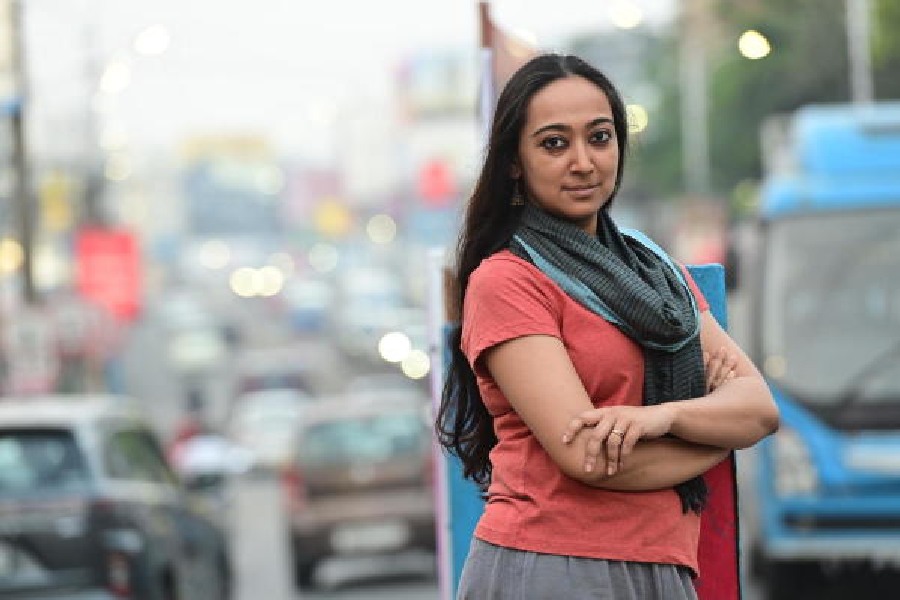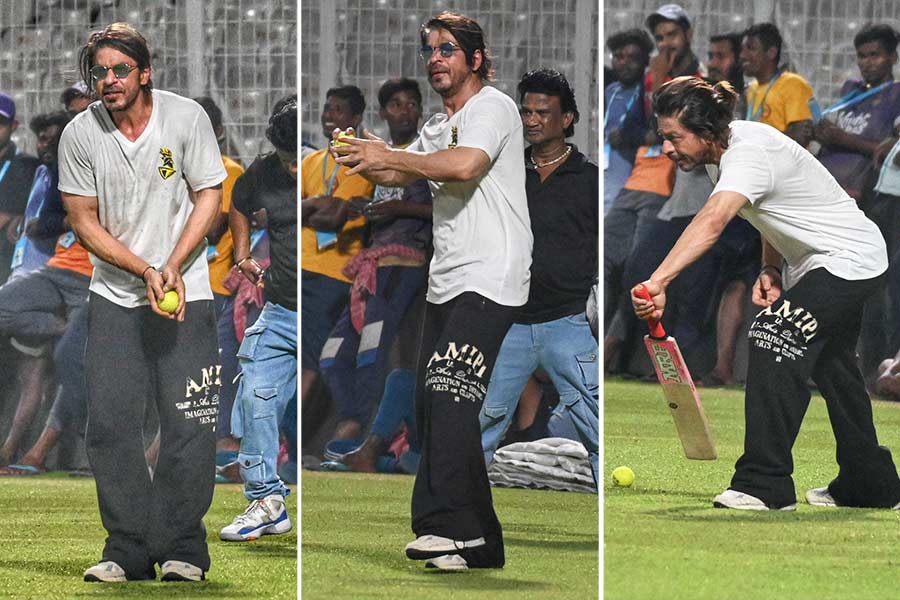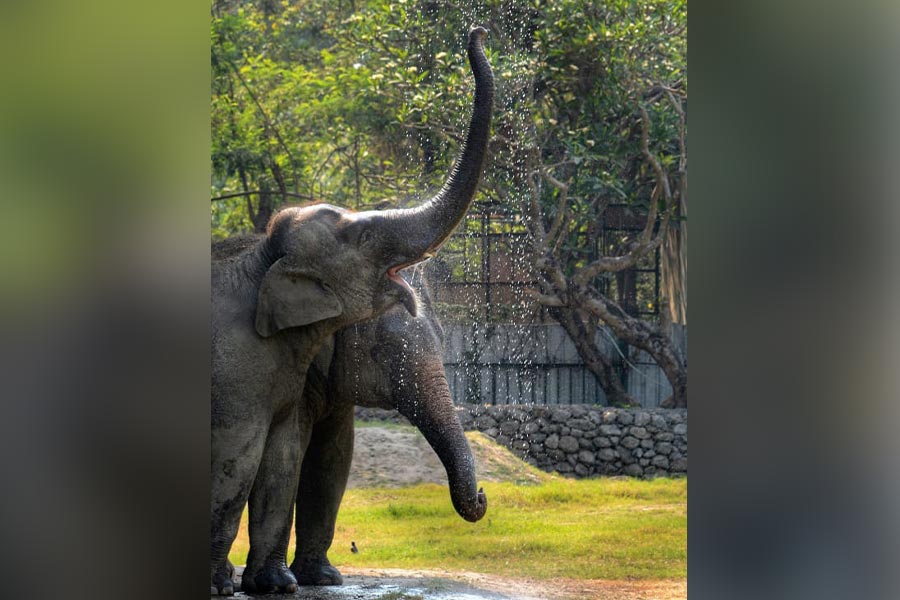In Saadat Hasan Manto’s short story Khol Do, a father and a daughter, Muslims, are trying to cross the border from India during Partition. They are fleeing death; the girl’s mother was killed in front of them. They take a train.
The father gets down in a barely conscious state where the train stops and realises that his daughter is missing. A group of energetic young men, self-appointed saviours of those who have survived the killer mobs that descended on the train, promise the father that they will find his daughter. They do.
Then the father finds her, too, but not in a condition that he wanted to. Manto is silent about what happened to her. It is as if the enormity of the violence done to her by her “saviours” defies words.
Sexual violence transcends borders. It is not about this side or that side. Khol do means “open it” or “open”, depending on the context.
Written in 1948, one year after Partition, Khol do, ironically, was one of the stories for which Manto had to face charges of obscenity.
It not easy to act Manto’s story, not only because of the devastating silence at its heart. But Shruti Ghosh performs the story. The 40-year-old dancer, actor and scholar from Kolkata has been performing it since 2022 and has completed 25 shows. She has written it as a 20-minute one-woman act and has performed it in many places in the country, because she felt it was an imperative.
She and I are meeting at a south Kolkata cafe. She lives between two homes in the city, in Nagerbazar and Garia. She talks excitedly about performing Manto’s story in Haryana’s villages, which left a deep impression on her.
She acted the Manto story in Hindi — the original is in Urdu — in Chidhi Chandni, Seyman and Ghuskani, some of Gurgaon villages she performed in at the height of summer in 2022. She was quite unprepared for her experience there.
She had felt compelled to put together the performance during the pandemic.
In 2020, Ghosh was back in Kolkata from Kazakhstan. “I had been working as a dance teacher with the Indian embassy there,” she laughs. She is used to making unusual choices. After studying comparative literature at Jadavpur University, had gone to Sydney to study Hindi film dance, come back to Delhi and left for Kazakhstan, where she enjoyed her experience immensely. But after two years, with the pandemic spreading and her family living in Kolkata, she wanted to return.
But she did not know what to do during Covid — if she would be able to pay the others, if the right space would be available. Then Ankur Roy Choudhury of Swabhav Natak Dal, her friend and mentor, told her something.
“There is nothing other than your self and your body,” he said.
The words struck her. This was also strangely appropriate for Manto’s stark prose, which is about the body.
“In Khol do, we are talking about the female body, which is almost like a piece of land. It can be occupied, destroyed, attacked, harmed. It can be used for pleasure,” says Ghosh. Especially during war and violence. If it was so during Partition, it remains so in Manipur, in Palestine now. Manto’s story is universal and of absolute relevance, about the violence on women that is expected to follow casually from a “greater” violence.
Ghosh built the performance using just what she had: her body, her voice. She uses few words and the only external sound is that of a train. “I am using the body alone to talk about the attack on the body,” she says.
In her performance, she pares down Manto’s prose even further, making the performance abstract at one level, but adds elements of Kathak, the dance form she has trained in, to quite spectacularly point at the eight men, the perpetrators, with eight strikes of her foot. But Ghosh acts out at the very beginning what Manto leaves unsaid. She has to spell out a few things. She is using her art to say something.
In Gurgaon, she would stay at the home of villagers while performing. Mostly women would come to watch her, though in many of the villages in Haryana women are fewer in number than men. But the women are farmers and several had joined the farmers’ protests.
“The performance would be held around six in the evening, because then the women would go to collect water after the day’s work.” They would leave early in the morning for the fields. “Though all this is ‘domestic work’ when done by women,” reminds Ghosh.
At first she felt let down by the lack of response. But after the performance when she sat in the kitchen with other women — and the kitchen was a vital, often empowering space for women, despite the gender divide — she would be bombarded with questions: about her home, family, husband.
Then the penny dropped. “I realised this was the response.” Her performance may not have been looked at as a performance. One woman had told her that what Ghosh had enacted was familiar reality.
Ghosh has performed the story in other places, often very different: Ashoka University, Jadavpur University, as well as a small computer training centre in Gurgaon or a street corner in a small town in Bengal. She often performs in the open, in a busy city street, or a village, and not always on the stage, because though she stresses that she appreciates every response, she does not want her performances to be restricted to art spaces and “the initiated”, she says.
She talks about performing Khol do — in Bengali — at a crossing in Baidyabati in Hooghly district, about 25km from Kolkata, on December 6, 2022. Babri Masjid was demolished on December 6. She saw women watching her, but from inside their homes. At the end of the performance some of them came out and quickly pressed Rs 10 or 20 notes under the tarpaulin on the ground.
Ghosh had started work on Manto’s stories several years earlier. She is part of several other productions, having recently co-directed, with Trina Nileena Banerjee, a production of Abanindranath Tagore’s Buro Angla with the children of Piyalir Boighor, an initiative of Ebong Alap, a city group that works towards building critical and gender-sensitive conversations. Piyali village is near Canning, in South 24-Parganas.
Ghosh’s other solo acts remain clearly political. One is Juddho keno hoi (Why do we have war?), based on a history book for children brought out by the Institute of Development Studies Kolkata and Rosa Luxemburg Stiftung South Asia. The other is Bornoporichoy, based on a book on women’s struggles by Ebong Alap.
But then what is not political?
Currently, Ghosh is working on the Kidderpore and Metiabruz areas with an India Foundation for the Arts grant to trace the erasure of Wajid Ali Shah’s legacy. Biryani is not his only contribution to the city.
“But I wonder why, as a Kathak dancer growing up in the city, I never thought of him,” says Ghosh.






